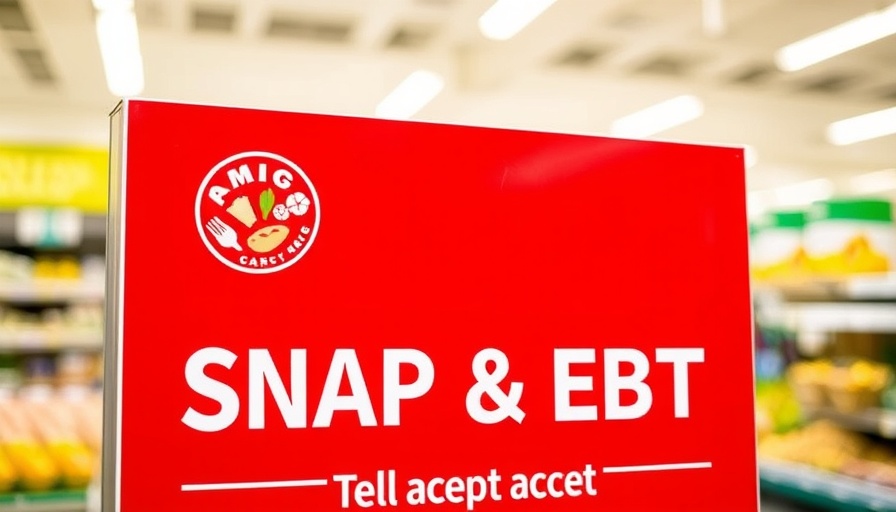
Florida's Bold Move to Restrict SNAP on Junk Food
In a significant policy shift, Florida is joining five other states approved to restrict the use of Supplemental Nutrition Assistance Program (SNAP) benefits on junk food, as announced by Health and Human Services Secretary Robert F. Kennedy Jr. Earlier this month, Kennedy highlighted this initiative aimed at enhancing public health by steering low-income families away from high-sugar and high-calorie items.
Understanding the Restrictions
The new SNAP waivers will come into effect in 2026, alongside similar measures in Texas, Oklahoma, Louisiana, Colorado, and West Virginia. These restrictions primarily target sugary sodas and candy, while some states are even expanding the list to include energy drinks and certain juice products with minimal natural content. This marks a proactive step taken by states to address rising concerns over obesity and related health issues.
Flipping the Narrative: Is This a Help or Harm?
This initiative aims to repurpose taxpayer dollars away from products that contribute to health issues like diabetes and obesity. Kennedy reinforced that it is unwarranted for taxpayers to subsidize unhealthy food for vulnerable populations. Through these waivers, states embracing these changes can champion healthier food options and provide better nutrition to families needing assistance.
Comparative Insights from Other States
Florida joins eleven other states in this reform journey, including Nebraska, Iowa, Indiana, Arkansas, Idaho, and Utah, which already have restrictions in place. The success of such policies in these states offers valuable lessons for Florida, especially in navigating potential pushback from advocates concerned about food freedom and choice among low-income families.
Competitive Edge: States Leading the Charge
States like Arkansas show how restrictions can also be tailored—preventing the use of SNAP for products like "fruit and vegetable drinks" that lack significant juice content. This targeted approach emphasizes the importance of providing not only safer but also genuinely nutritious options to low-income households.
Encouragement for Broader Implementation
As states rally around these waivers, Kennedy has urged governors from across the country to consider following this model. The goal remains clear: ensuring American families have better access to wholesome food options that nourish rather than harm. This initiative exemplifies a growing trend towards recognizing the role of government in promoting public health.
The SNAP policy reform in Florida reflects the state's commitment to tackling the health crises linked to junk food consumption. As this policy unfolds, the potential benefits could lead to a healthier future for countless families.
 Add Row
Add Row  Add
Add 




Write A Comment